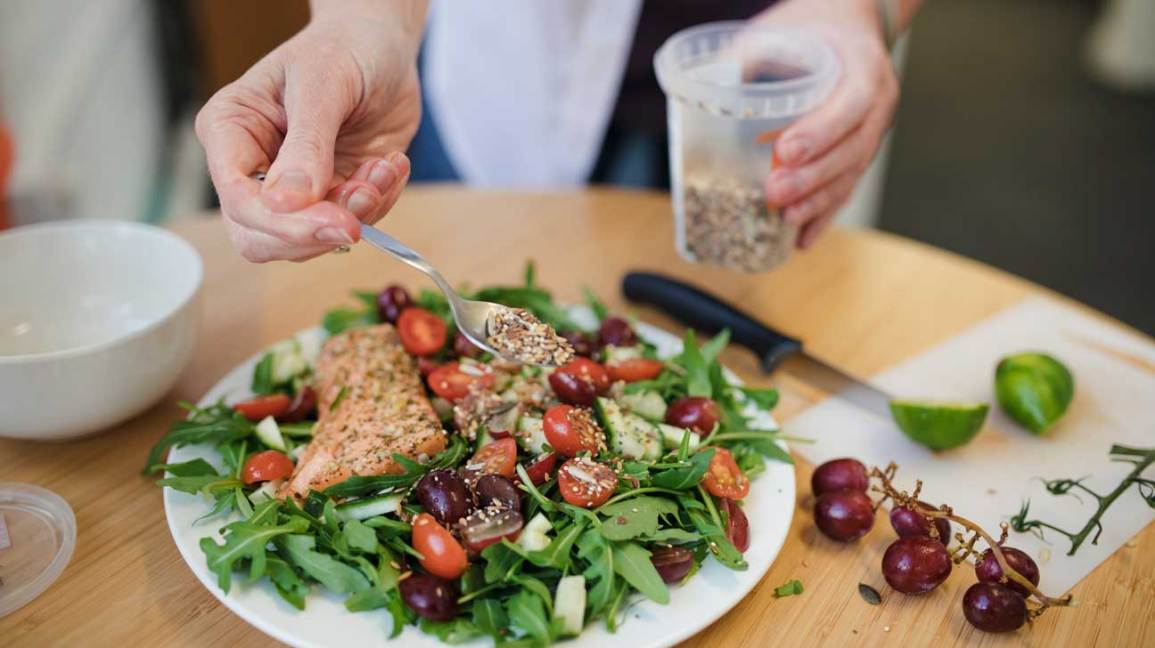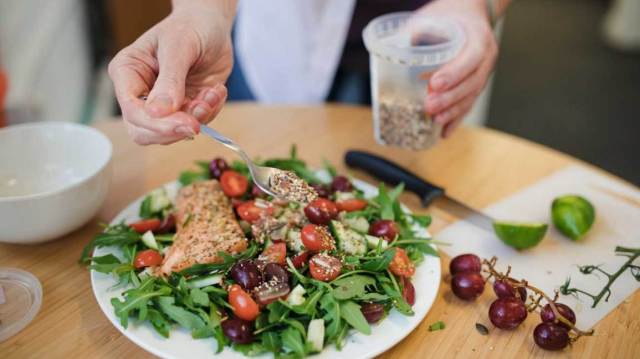
Editor’s note: Any medical advice presented here is expressly the views of the writer and Red Tricycle cannot verify any claims made. Please consult with your healthcare provider about what works best for you.
Are you in tune with your hormones? Sure—maybe you know what they are and that you have them. Many women even have more in-depth knowledge about how hormones impact their cycles and fertility. But did you know that hormones can affect everything from your skin, hair, and mood to sleep quality, sex drive, weight, and general wellness? That’s a lot of important things!
All the more reason why you should want to maintain a healthy hormone balance. However, our hormones don’t always play nice. If you experience heavy or irregular periods, hot flashes, mood swings, irritability, breast tenderness, or just generally feel off, you may have a hormone imbalance.
For many women with hormone imbalances, PMS, or PCOS, seed cycling can help balance hormone levels and can also potentially reduce symptoms. Seed cycling is a natural and healthy way to help balance hormones!
Before you go buying up all the seeds, you need to know that while seed cycling isn’t harmful, it’s important to understand your hormone levels before attempting to treat imbalances. The last thing you want to do is make an existing hormone imbalance worse! Luckily, there are plenty of at-home hormone testing options available to give you insight into your cycle. Of course, if you have specific questions or are looking for where to start, I recommend consulting your doctor.
What is seed cycling?
Seed cycling involves eating certain types of seeds during certain phases of your menstrual cycle to promote a hormone balance. In a typical menstrual cycle, estrogen levels rise during the first half of the cycle (the follicular phase) and progesterone levels rise during the second half of the cycle (the luteal phase). Promoting the production of these key hormones during their respective phases leads to a healthy hormone balance.
When seed cycling, you’ll want to track your menstrual cycle so you know which phase you’re in and which hormone you should be boosting. The next step is adding the seeds!
During the follicular phase, estrogen is the star. For days 1-14 of your cycle (for those new to cycle days, day one is the first day you have your period), you’ll eat 1-2 tablespoons each of raw flax and pumpkin seeds per day. These seeds, which contain lignans and zinc, naturally support estrogen production.
After day 14, progesterone takes over for the luteal phase. On day 15 of the cycle, or after ovulation day, you’ll want to make the switch to 1-2 tablespoons each of raw sunflower and sesame seeds per day. These seeds promote progesterone production, thanks to their zinc and vitamin E contents.
You’ll continue eating sunflower and sesame seeds daily through day 28 of your cycle—the last day before your period. Once Aunt Flo is in town, you can break out the flax and pumpkin seeds once again.
I’ve found that seed cycling works best when the seeds are raw and freshly ground, as it’s easier for your body to absorb the nutrients. If you’re wondering what the heck to eat seeds with, here are a few options:
-
Seed-based energy bites
-
Fresh seed butter (sunflower butter is a fave!)
-
Seed-based granola
-
Sprinkling seeds on a salad or mixing them into salad dressing
-
Blending seeds into smoothies
-
Topping other dished with seeds, such as chia pudding, oatmeal, or yogurt parfaits
I’ve had low progesterone throughout adulthood, which caused my infertility challenges and continued to make for unpleasant periods, headaches, and low energy each cycle. I started seed cycling as a natural way to help my body naturally balance hormone levels and I’m a huge fan! Since starting, I’ve noticed fewer headaches, shorter and lighter periods, longer luteal phases, and overall increased mood and energy levels. I recommend it to all my friends!
It can take about three months for you to see the benefits of seed cycling. I recommend keeping a journal to keep track of your symptoms through the cycle so you can look back to see impacts over time. As always, if you have any concerns it’s best to consult your doctor. Happy cycling!



















